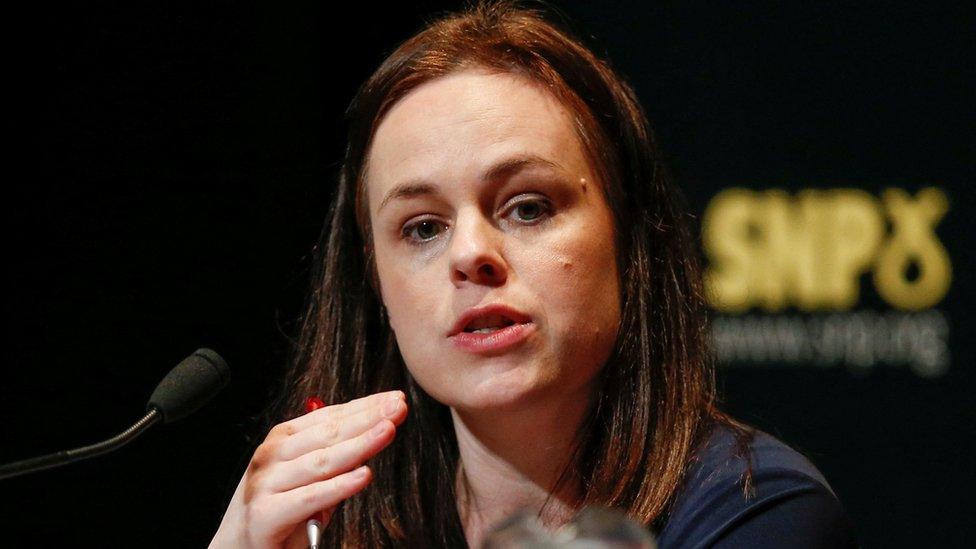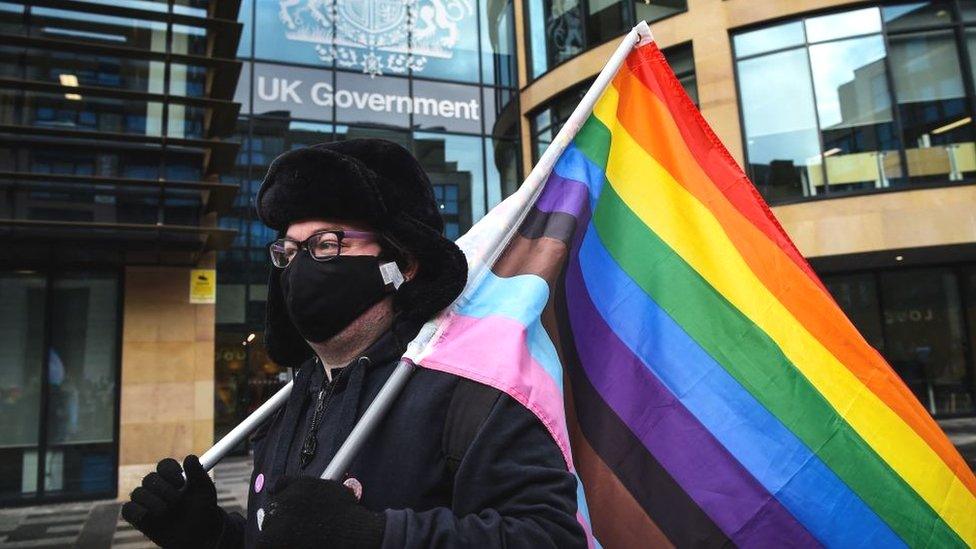Ministers should not appeal against gender ruling - Forbes
- Published

Kate Forbes stood for the leadership of the SNP earlier this year
The former finance secretary, Kate Forbes, has urged the Scottish government not to appeal a court decision to uphold the UK government's block on gender reform.
Ms Forbes said politicians should work to "heal divisions not exacerbate them".
She said a reformed bill should safeguard the rights of trans people as well as women and girls.
The Scottish government has three weeks to decide whether or not to appeal.
Writing on X, formerly Twitter, Ms Forbes said she urged the Scottish government "not to prolong the legal battle further" over the Gender Recognition (Reform) Bill.
She said: "I previously argued that Scot Gov shouldn't contest S35 unless there was a v high chance of success.
"A loss for Scot Gov would obvs absorb public funds but could also embolden future UK Govs to interfere in devolution, which no party of independence wishes to see."
She added that the legal process "has created a period of great uncertainty and fear for trans people and women and girls, deepening already bitter divisions".
She also warned that losing an appeal at this stage could "embolden" future UK governments to "interfere in devolution".
Her intervention comes a day after judges at the Court of Session in Edinburgh ruled that the UK government acted lawfully in blocking Scotland's gender self-ID reforms.
The legislation, which is designed to make it easier for people to change their legally-recognised sex, was passed by the Scottish Parliament last year.
The UK government blocked it from becoming law over fears it would impact on equality laws across the rest of the UK.
Friday's Court of Session ruling rejected a Scottish government legal challenge to the veto.
If the Scottish government now decides to appeal against the ruling, the case could ultimately end up in the Supreme Court in London.
The legislation received cross-party support in Holyrood, passing by 86 votes to 39.
Opponents of the reforms warned the legislation could risk the safety of women and girls in same-sex spaces such as hospital wards and refuges.
Supporters argued it would make the process of obtaining a gender recognition certificate (GRC) easier and less traumatic for trans people.
'Significant concerns'
Ms Forbes came a close second in the SNP leadership contest after the resignation of Nicola Sturgeon earlier this year.
A member of the Free Church of Scotland, she has spoken of experiencing a backlash against her religious views.
She has previously said she would not have voted for the Scottish government's gender reform bill in its current form.
In February she told BBC Scotland she had "significant concerns" about gender self-identification.
In response to interview questions during her campaign, she said the idea of having children outside of marriage conflicted with her Christian faith and confirmed that she was anti-abortion.
Ms Forbes also said she would not have voted for same-sex marriage if she had been a politician in 2014 when the law passed.

Scottish Green Party MSP Maggie Chapman believes the Scottish government must appeal the ruling
The Gender Recognition (Reform) Bill is a central part of the Bute House Agreement, which brought Green co-leaders Patrick Harvie and Lorna Slater into government with the SNP as ministers.
The Green MSP Maggie Chapman told the BBC she believed the Scottish government ought to appeal Friday's ruling to protect both devolution and the rights of trans people.
"Getting reform of the Gender Recognition Act through the Scottish Parliament is a cornerstone of the Bute House Agreement that the Scottish Greens have with the Scottish government," she said.
"But it is really, really important that we give all seven MSPs, the wider Green Party membership as well, the opportunity to have contributions to the conversation."
- Published8 December 2023

- Published20 February 2023
